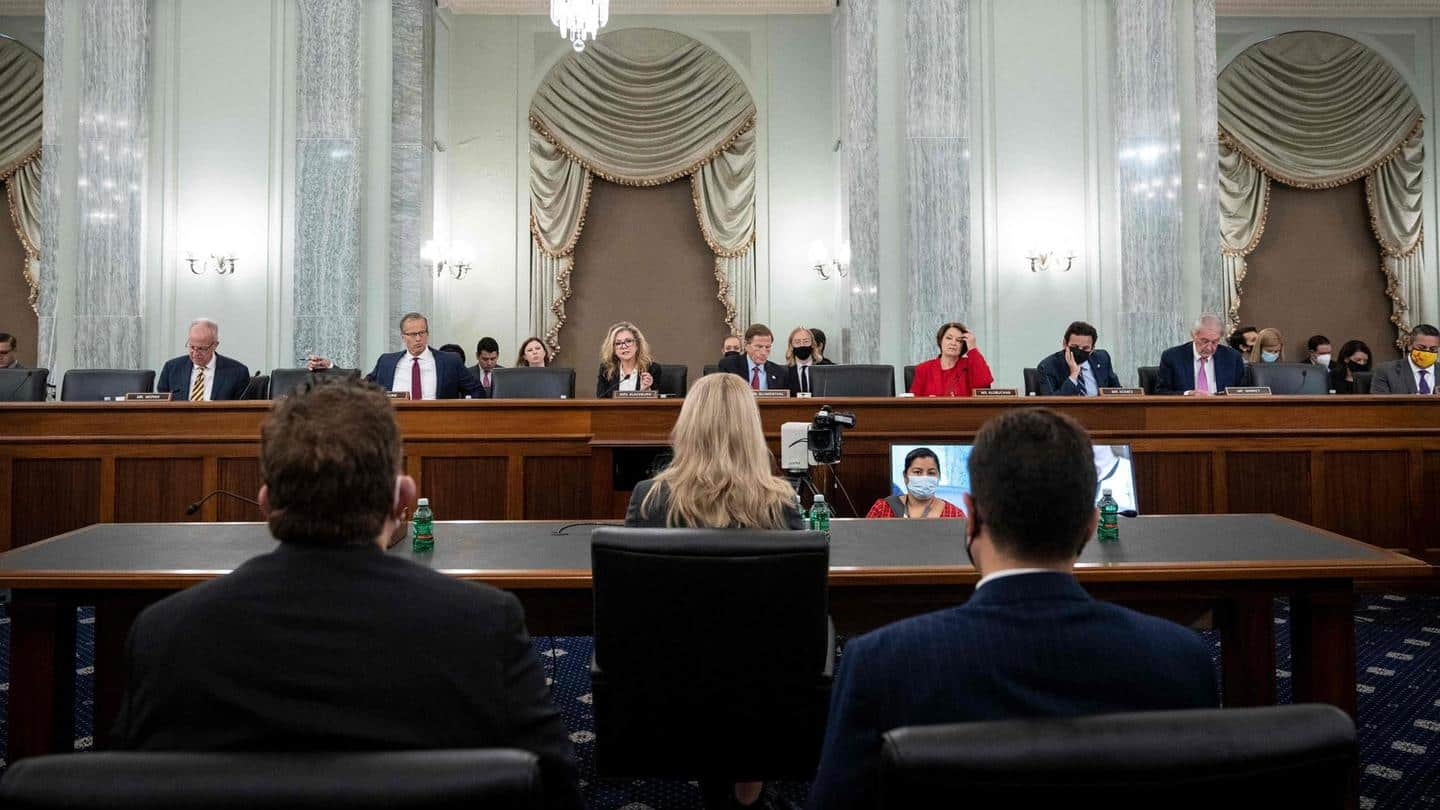
Facebook whistleblower testifies before Senate: Here are the key points
What's the story
Facebook whistleblower Frances Haugen made her identity known to all on Sunday night's episode of 60 Minutes. She had complained to the Securities and Exchange Commission about Facebook and leaked its internal research and documents to the Wall Street Journal.
On Tuesday, Haugen testified before the Senate Committee on Commerce, Science, and Transportation, highlighting the unhealthy effects of Facebook's algorithms.
Here's everything she mentioned.
Quick refresher
Haugen was a product manager for Facebook's Civic Integrity Group
In case you aren't aware, Haugen was a product manager at Facebook's Civic Integrity Group. The group was dissolved after the 2020 US Presidential Election.
She leaked Facebook's research about several subjects including how Instagram harms the mental health of teenagers. The matter was the subject of a Congressional hearing and Facebook eventually shelved the development of Instagram Kids.
Opening strong
In opening remarks, Haugen said Facebook's choices 'disastrous' for society
In her hearing before the Senate Committee, Haugen's opening argument set the tone for the session.
"The choices being made inside Facebook are disastrous—for our children, for our public safety, for our privacy, and for our democracy—and that is why we must demand Facebook make changes," she said.
Haugen also reiterated points about the Civic Integrity Group, misinformation, and international security.
Revelations
Here's why Facebook inevitably amplifies misinformation, toxic content
Haugen told the Committee that the algorithm changes Facebook rolled out in 2018 rewarded posts that generated meaningful social interactions and prioritized interaction (comments and likes) from those Facebook thinks are closest to you.
She added that Facebook's artificial intelligence (AI) boosts content that elicits stronger reactions, amplifying misinformation, toxicity, and violence.
She suggested chronological post ranking as a mitigant.
On, off, on
Facebook turned off safeguards that could prevent Capitol Hill protests
Addressing the election misinformation aspect, Haugen told the Senate Committee that Facebook put the Civic Integrity Group and other safeguards in place before the election because it knew it was "dangerous."
However, "because they wanted that growth back after the election," they turned off the safeguards. Haugen said this was "deeply problematic."
After the January 6 Capitol Hill events, Facebook switched safeguards on again.
Numbers game
With safeguards, Facebook could become more profitable in 10 years
Haugen emphasized that Facebook is currently being "led by metrics and not people." She urged the Committee to push Facebook to "move (away) from short-term-ism."
She said that with appropriate oversight and some constraints, Facebook could become much more profitable five to 10 years later "because it wasn't as toxic and not as many people quit it."
Section 230
Companies can't control user-generated content, but they can control algorithms
Haugen told the Committee she strongly encourages reforming Section 230 of the Communications Decency Act that absolves social media platforms of liabilities arising from user-generated content.
She said Section 230 should exempt decisions about algorithms so companies are liable for legal action if their algorithms are found to be harmful.
Facebook shouldn't get a "free pass" on choices prioritizing growth over safety, she said.
In Zuck’s shoes
Haugen emphasized the need for immediate "soft interventions"
Interestingly, when questioned about what she would do in Facebook CEO Mark Zuckerberg's shoes, Haugen said she would lay down policies for sharing information with oversight bodies including Congress.
She would work with academicians to ensure they have ample information for research about the platform.
In the short term, she would implement "soft interventions" to protect elections and curb the spread of misinformation.